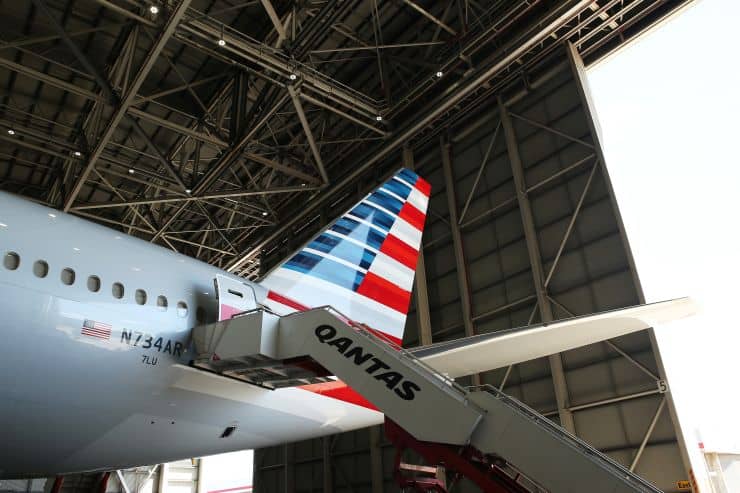
The U.S. Transportation Department is expected to provide tentative approval to a bid by American Airlines and Qantas Airways to operate a joint venture, two people briefed on the matter said on Sunday.
The department is expected to issue an order tentatively approving the joint business agreement and tentatively granting antitrust immunity, according to the sources, who spoke on condition of anonymity.
The order, which is expected as early as Monday and would be subject to public comment, is likely to include conditions to protect competition and allow for government oversight of the venture, the sources added.
A department spokesman declined to comment on the matter.
The application by American and Qantas for a joint venture covering the United States, Australia and New Zealand was tentatively rejected in November 2016 by former President Barack Obama’s administration amid opposition from rival carriers Hawaiian Airlines and JetBlue Airways.
Regulators in Australia and New Zealand approved the first application for the joint venture before it was rejected by the U.S. Transportation Department.
American Airlines spokeswoman Shannon Gilson said on Sunday the airline feels “we have made a compelling case about the benefits of the joint business for customers, and there was no opposition raised to our proposal. We’re hopeful the Qantas joint business will be approved.”
American and Qantas in February 2018 made a second attempt to gain U.S. regulatory permission under President Donald Trump’s administration for a venture that would let them coordinate prices and schedules, threatening to cancel services if it was rejected and arguing it could “unlock” up to $310 million annually in consumer benefits.
The revised application made significant changes including removing a provision that would have barred either carrier from codesharing with other carriers. Codesharing is a arrangement between airlines in which two or more carriers publish and advertise a single flight under their own airline number.
The airlines argued in their 2018 application that the venture would lead to a reduction in fares and higher capacity as a “more viable third competitor” and require other carriers to respond with improvements to quality, schedules and price.
Qantas said last year the joint venture would allow the two airlines to “significantly improve service” and “stimulate demand.” The airlines said the agreement could generate up to 180,000 new trips between the United States and Australia and New Zealand annually.
The airlines said if the bid were rejected it could result in Qantas reducing the frequency of, downgrading or even cancelling its A380 service between Sydney and Dallas/Fort Worth, while American may further reduce service between Los Angeles, Sydney and Auckland.
The airlines started sharing codes on each other’s flights in 1989, co-founded the “oneworld” marketing alliance in 1999 and formed a deeper partnership in 2011 without antitrust immunity.
American Airlines and Qantas currently rely on codeshare agreements to make those routes economically viable. If the venture is granted final approval, the two could offer more flights, including to cities not currently served by either, they said.
U.S. regulators in 2001 approved similar joint venture agreements for United and Air New Zealand and in 2011 for Delta Air Lines and Virgin Australia.
